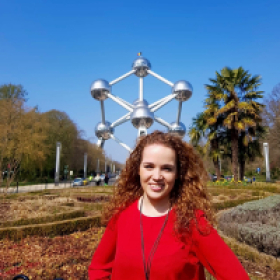

Tessa Pouels González, lawyer-linguist assistant in the Dutch team in the Directorate Quality of Legislation
My name is Tessa, I come from Spain and I work as a lawyer-linguist assistant in the Dutch team.
When I finished my master's degree in legal translation, I thought that my next step would be to work as a freelancer, but I am proud to say that the European institutions offer opportunities to motivated young people eager to be part of the European project.
Working at DQL – where we check the drafting quality of legal acts of the European Council and of the Council – is both challenging and rewarding, as you get to participate and gain an insight into the process of adopting legislation. It is most motivating to be part of a multicultural team with colleagues from different academic, professional and social backgrounds where you are constantly encouraged to continue growing personally and professionally, while benefiting from good working conditions, a wide range of training opportunities and the possibility to change jobs between services and institutions.
If you always wanted an international challenging and interesting career, I highly recommend working for the European institutions. Besides, life in Brussels is enriching and interesting with many activities and events to enjoy.
Lawyer-linguist assistant in the Dutch team in the Directorate Quality of Legislation (DQL) at the Council of the European Union
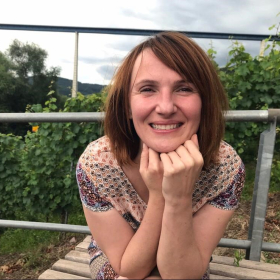
Agnieszka Wendel, linguistic assistant at the Polish Translation Unit
I have been working for the Directorate-General for Translation (DGT) Polish language department in Luxembourg for 15 years.
I studied Spanish Philology and American Studies in Poland, at the Jagiellonian University. Before working at DGT I was an official at the American Consulate in Krakow and wanted to continue my work path in an international environment.
I like my job because:
- I feel part of the European society,
- it’s never boring,
- it helps me develop as a professional.
Working at DGT gives me lot of satisfaction. I can feel I am doing something that really counts in the world. Dealing with everyday problems and world issues lets me see and understand what EU means for all of us. The job of the linguistic assistant gives me a lot of opportunities because it is developing along with the world. When I started 15 years ago it was a completely different kind of work. Everything developed, skills, software etc. I had the chance to acquire new computer skills, to learn German and French, to develop my social skills. I also had the chance to work for a few months in the European Parliament, which was one of the most exciting experiences for me.
The biggest challenge for me is to reconcile the professional and private life. I am a single mother with two young children, so I really appreciate how DGT lets me organize my working time (e.g., part time) to manage life in a way that is suitable for everyone.
I moved to Luxembourg in 2007, which was a big change for me, as I left a big city of almost 1 million inhabitants for a much smaller capital. Luxembourg welcomed me with rain, low traffic and its internationality. I really liked the efficiency of the public transport, which offered me many options to get to work smoothly and usually on time. Living in Luxembourg opens your mind. You can hear so many languages in the street, you can make friends from all over the Europe, you really feel you are a part of the world.
Linguistic assistant at the Polish Translation Unit at the European Commission (Directorate-General for Translation)
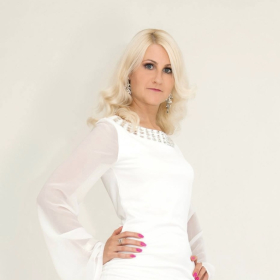
Jana Zhvanko, linguistic assistant at the Estonian Translation Unit
I decided to participate in an EPSO competition for translation assistants; I passed it, and joined Parliament in 2008! Being an open, active and communicative person, I made the most of it and enjoyed every single day of my working life here – and I still do.
My work involves the use of a range of both linguistic and technical skills, which makes it very dynamic. Given that we use a variety of different tools and working methods, and that our technical instruments are always being developed further, there is always room to grow personally and broaden one’s knowledge.
For me, working for DG TRAD at Parliament is like building a linguistic bridge between the political world and the citizens of each member state. The EP’s newest projects bring us closer to people, and help us to connect and interact with them. I see myself as part of a big structure: as it is the case with all complex, multi-faceted mechanisms, every single part of the system is important. Only together do we make it work!
Linguistic assistant at the Estonian Translation Unit at European Parliament (Directorate-General for Translation (TRAD))
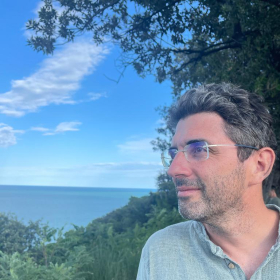
Alberto, European Commission
“It is very exciting to participate in such an important policy area as energy, which has a direct impact on our daily lives and those of future generations. As a lawyer who has always been passionate about transnational legal issues, I find it particularly fascinating to be involved in the shaping and application of Euratom law. The working environment is very stimulating and enriching, as it allows for a constant exchange of views with people with a very diverse mix of competences and backgrounds. Luxembourg is a unique place. A capital at the centre of Europe with a very distinctive international vibe, where one can hardly feel like a foreigner.”
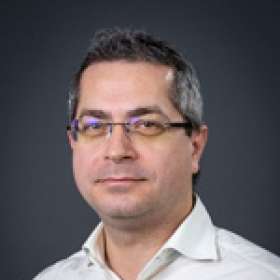
Todor T., Head of Department Central Systems
"Born outside of the European Union, behind what people call "the Iron Curtain", I grew up in times of change. I studied and graduated in the Technical University of Sofia. Shortly after my home country joined the EU and, from one day to the next, I was working in the European Union: it became easier to travel to another country; to work for a foreign company and to live abroad. For several years I worked and lived in the European Union, and now I work for it.
After 7 years of experience in the private IT sector, in 2011 I joined one of the 34 decentralised agencies of the EU as a temporary agent. There I realised that working for the European Union is more than a multicultural experience - it is applying your skills and expertise for the common good of people living in different countries, each of which may have a different way of doing things. As an Application Portfolio Manager my mission was to ensure the proper functioning of the SAP ERP solution in place. With a team of specialists we were analysing updated business requirements and then building and enabling additional features needed.
In 2012 I have participated in an EPSO competition just like this one - the European Union was looking for skilled and experienced ICT specialists, willing to join the lines of its staff. After passing the competition I have joined DG ITEC of the European Parliament, where I still work until today. And organistions are like living organisms - their processes mature; data and capacity grow; projects are created, executed and closed; something always happens and often due to change in priorities.
For the last 8 years I have changed three different roles in DG ITEC - Project Manager, Application Responsible and now Head of Department. Working for the IT department of the organisation representing the interests of 450 million EU citizens is both a responsibility and commitment, where being a good team player is only for starter. It is also an awesome career for a boy who went into IT because of computer games."
Directorate-General for Innovation and Technological Support, Corporate IT Systems Unit, European Parliament
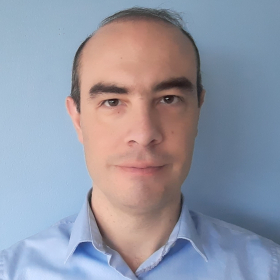
Emmanouil P., IT project manager
"I joined the European Institutions as an official in 2016, after more than 10 years in the private sector in Information Technology domain. Since February 2021 I am a member of the Directorate-General for Innovation and Technological Support of the European Parliament.
In the context of my current post, I am managing Information Technology projects in the promising domain of Digital Workspace and Digital Transformation.
It is inspiring to experience how the IT solutions you manage and your invested effort facilitates the operation of an institution with a complex structure and several thousands of employees and stakeholders.
The overall sense of responsibility that is required, motivates me to strive for excellence, since the output of my work has high visibility and direct impact on the daily work of Members of European Parliament and senior officials of the Institution.
The working environment is exceptional, allows you to take initiatives and utilise your skills and expertise. Management has been supportive, ensuring that you integrate smoothly in European Parliament ecosystem. I particularly appreciate the multicultural atmosphere, interacting daily with colleagues from a variety of European countries.
A wide variety of training opportunities is available and there is investment in professional development, which is a crucial point for a rapidly evolving domain like Information Technology."
IT project manager, Directorate-General for Innovation and Technological Support, Corporate Information Systems, European Parliament
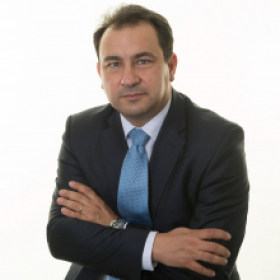
Nikos Z., Auditor
"I joined the European Court of Auditors in 2006. As an auditor, I work on cohesion policy and on the annual performance report, which provides an overall assessment of the added value of EU programmes.
My duties include planning audits, assessing evidence, reviewing a large variety of documents, drafting reports as well as making on-site visits to authorities and beneficiaries in Member States. Our main working language is English but we also speak several other languages. Good communication and organisational skills are essential to my job.
I have a background in engineering, followed by studies in Public Administration. I also qualified as a certified internal auditor with the Institute of Internal Auditors and then completed a Master of Science in Audit Management and Consultancy. Before joining the European Court of Auditors, I worked as a project manager and as an internal auditor in industrial organisations."
Auditor, European Court of Auditors
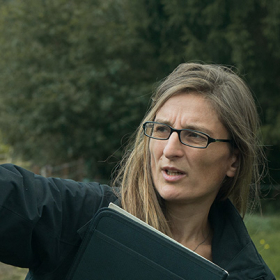
Els B., Principal auditor
“Being an auditor at the European Court of Auditors (ECA) is very interesting. I had the opportunity to work on a variety of different subjects, such as the Galileo satellite navigation system, EU water policy, certification of organic products, renewable energy. Talking to experts in the field is enriching and allows you to understand the nuances of what you are auditing. At the ECA, we are in a privileged position, because we get to see all the pieces of the puzzle: the EU rules, the Commission’s role, how Member States are organised, what beneficiaries need and think, how lobbies or action groups view the situation and what the challenges are to implement a policy.”
Principal auditor, Chamber I – Sustainable use of natural resources, European Court of Auditors

Alexandros G., Project leader
"I am an Electrical and Computer Engineer with an integrated Master of Engineering in Electrical Energy and a second Master of Science in Advanced Computing and Communication Systems in the field of IoT. I come from Thessaloniki where I worked for several years while studying in the polytechnic school, in the private sector as an IT Business Analyst and IT Project manager.
My first experience with the European Parliament was the Schuman traineeship 2.5 years ago. A very nice experience which, given my background in the IT sector, allowed me to observe, see, identify and understand what the European Parliament is and what it represents. Nowadays I work as a Project leader at Directorate-General for Innovation and Technological Support and I am also managing the IT lounges in Brussels and Strasbourg. IT lounges are the places where we offer in-person IT support to the Members of the European Parliament and their Assistants. It’s a quite big population so quite a big responsibility. You constantly interact with people and you always need to be a high-level problem solver.
My Unit is responsible for the support offered to Members and their cabinets for their digital activities. We make sure that their digital workplace is running smoothly. We offer tangible solutions while dealing with the intricate IT world. Remote meetings, remote voting, IT support, IT training are some of our everyday activities. We are the middle people translating business into IT for the IT department and vice versa. I like to describe ourselves as translators. Our “eternal” goal is to offer innovative solutions and protect the office workflow in a personalized way.
European Parliament is an incredible place to work at. It’s the beating heart of the legislative procedure of Europe. A place where you connect with people from all member states. You have the opportunity to work with people of different cultures and languages.
Digital Parliament is a fact and what we need is to upscale the cornerstone and the IT professionals to facilitate this new normal. I work with colleagues whom I consider family and are trustworthy. And this is something unique. European Parliament is a place of great importance where everyone matters. Since I found the workplace I like most, I invite you to do the same and chase a career in the European Parliament!"
Project leader, Directorate-General for Innovation and Technological Support, European Parliament
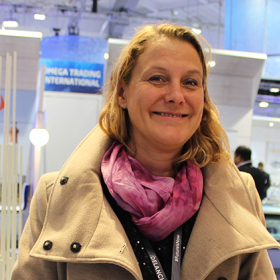
Desiree Kjolsen, Policy officer
"I work on the EU policy to fight illegal fishing. The EU has been global frontrunner on this policy for many years. It motivates me to know that even if changes take time, I have been part of putting a system in place that has an effect on the illegal behaviour of fishers – be it inside or outside the EU –benefitting fish stocks and communities affected by illegal fishing. I am very proud of our work. My daily work consists of ensuring that our legislation is properly implemented by EU Member States and more than 92 third countries through meetings, briefings, IT systems and legislative developments. Not one day is alike."
Policy officer, Unit for Illegal, Unreported and Unregulated Fisheries Policy, Directorate-General for Maritime Affairs and Fisheries (MARE), European Commission

